#Venezuela's dystopia
Explore tagged Tumblr posts
Text
You truly know shit has hit the fan when you're forced to acknowledge the fact that you, somehow, are in the same side of an argument as Elon Musk . Don't get me wrong, he is still complete, utter shit but his FUCK NICOLAS MADURO stance is possibly the only thing I'll ever share with him.
10 notes
·
View notes
Text

Adoro los finales felices
Sometimes I really believe we are in a simulation


(1) (2)
There's no fucking way
#for context the man is diosdado cabello former vice president of venezuela#he is one of most powerful people in the country controls part of the military and 99% chance hes the one controlling maduro too#he has a quirky youtube channel where he looks for any anti-goverment posts on social media and broadcasts them to everyone#documenting date and name of who did it and youtube sent him a silver button#for the girlies who thought the government monitoring social posts in venezuela to go after people was made up#genuinely the funniest dystopia in the world#<- prev#venezuela#politics
36 notes
·
View notes
Text
Okay, so you’ve picked up Marx, maybe dabbled in communism, and now you’re all fired up about revolution. 👏 But before you dive in too deep and start calling yourself a “tankie” (or whatever’s trending these days), can I suggest something real quick? Read Animal Farm. 👀
I know, everyone knows Animal Farm, right? But honestly, I’m not sure how many of you have actually read it—and I mean really read it. Animal Farm isn’t just some cute little farm story with talking animals. It’s Orwell’s warning about why communism doesn’t work—and why it never will. 🐷➡️👨🌾
The animals overthrow their human oppressors, right? They’re all about equality—everyone is equal. But by the end, the pigs are walking on two legs, living in the house, and looking just like the humans they kicked out. That’s the point. The revolution gets corrupted, the leaders become just as bad as the ones they replaced, and the whole system falls apart. No matter how good the intentions are, when power’s involved, it all falls into the same mess. 😬
You’ve probably seen people online talking about how communism is the future, how it’s this radical change we all need. But let’s be real: look at the countries closest to communism today—North Korea, Cuba, Venezuela. Does that seem like the kind of world you wanna live in? Is that freedom? Is that happiness? Are those societies thriving? Because from where I’m standing, it’s more like a dystopia. 👀
So before you put that hammer and sickle in your bio, give Animal Farm another read. It’s not just a book—it’s history. It’s a cautionary tale that shows us why it doesn’t work and why it never will. We need new ideas, fresh thinking. Use that brainpower you’re flexing for change to build something that actually works. 💡🔥
Stop identifying with the same old ideologies that have been proven to fail, and start building something better. The future’s waiting for you. ✌️🌍
444 notes
·
View notes
Text
Being Venezuelan is deeply lonely.
I suppose that being from any dictatorship or any country with a terrible conflict such as Palestine or Ukraine also is. But I’m only from Venezuela. So I can only speak to that experience.
You might be wondering why I am writing this in English. Well, because most people here speak English, and I don’t need to explain this to other Venezuelans.
So… allow me to continue.
Being Venezuela is deeply lonely.
Let’s start with the obvious, less controversial part of this statement. Most people leave. Over a third of our population has migrated. This means everyone, and I mean everyone, has many friends and family members living abroad. Many can’t return. Many can’t leave. And until 25 years ago, we were the country that received migrants and refugees, not the one that produced them. So we are not emotionally prepared for this. I don’t even want to get into my specific situation. I’m sure it is not the worst, but it does isolate me a bit from my peers, even the most well-meaning and empathetic ones. And I’m sure it is not the worst one, but I hate it.
I also lived abroad for a year. Only a year though so I can’t claim to know the migrant experience. And I was lucky to live with my three best friends. But I imagine it is deeply lonely too.
Then let’s talk about the second, more controversial thing, but not the most. Living in a country with conditions such as ours is quite isolating. It is hard to relate to movies, to TV, to the foreigners you see in social media. Can’t find a film, TV show, musical… about living in hyperinflation, about a week long national blackout not caused by a natural disaster, political prisoners, exile… at least not depressing biopics or dystopia. Maybe that’s why I like Derry Girls so much….
And now the most controversial one. The world has turned its back on us. Our elections are stolen, our media censored, our children imprisoned and tortured, our indigenous people neglected and poisoned, a manmade humanitarian crisis…And whatnot. All of these because we are governed by a dictatorship, not some international sanctions. And some governments have expressed their support, but nothing goes further than that. And people complain that we are getting attention other problems should get, or we become jokes. We have to convince people that we are being oppressed, that we have the same right as anyone to fight for our democracy. But as we are not the perfect victim (and I could go on and on about that) we are on the receiving end of very dehumanizing speech.
And then you compare your situation to the USA were if one county in one state does something slightly wrong it sparks a global outrage. Then our entire country and its diaspora becomes the victim of massive human right violations, we become the bad guys.
And I just want you to compare that life experience.
And to top it all off, before you ask, I do have psychological assistance. And I’ve compared notes with other friends that also have the privilege of going to therapy. And our therapist are also going through this traumatic experience in real time. And they are sadly not well equipped to be dealing with this.
I am willing and able to help educate people on the topic of Venezuela. But tonight I just wanted to vent. So if you have questions or comments I will get to you, but maybe not right away.
#venezuela#by me#politics#sorry for the politics#lonliness#long reads#usa#mental health#derry girls#socialism#there’s even been a rise in suicides since the election#thereis no mental health without democracy
174 notes
·
View notes
Text
so, Claudia Sheinbaum has just become Mexico's first female president. I'm watching it on tv right now. The way I see things, very little is going to change. She dedicated part of her speech to make her feminist stance very clear. She uses a lot of vocabulary and ideas from social and feminist causes to make herself look progressive and cool. She might or might not personally adhere to these beliefs, it doesn't really matter.
I don't think her term will be significantly different to previous terms. Some things will get worse, lots of people will die of preventable causes, some things will get privatized, the country will still be owned by private companies and controlled by organized crime. And maybe some things will get a bit better. She's as terrible as her predecessors and as good as them. I don't see any point in either supporting or hating on her.
Something I am going to say is that I'm extremely annoyed by two things:
1. International sources and media unconditionally supporting this woman because she is a self proclaimed feminist jewish woman. Sure, she might be, but she's also a politician who will throw under the bus those causes the moment it's convenient. In short: shut up gringo, this is not a Mexico win, just another president.
2. Mexican conservative groups thinking Claudia and her party are turning Mexico into an anti-catholic communist dystopia. And saying we will "become just like Venezuela", on top of that. As if they understood or cared about Venezuela. "OHHHH it'S nOt heR wHo's in cHarGe, it's the pReviOus prEsidEnt and the ParTY and nARcOs aND cOmpANiEs", yes idiot, just like all previous presidents, that's how the country works, congratulations on realizing that. And I'm already seeing anti-semitism on their narratives.
All I want to say is please be normal about Mexico. Please. And shut up if you don't know what you are talking about.
12 notes
·
View notes
Photo
I was schooled in a French school and we learned about laïc government and that religion is a private matter. I was also taught that religion should only be spiritual. Nothing spiritually good ever came from a religion taking arms. Only materialistic gain, which go against any actual religion.
This... whole situation...
It is frighteningly too easy for humans to dissociate other humans from those they consider humans too.
Like, I learned that why people usually have a hard time to kill, like they say the frist time is the hardest but then it's get easier and easier, it is because we still see the other person as a uman, as the same as us, as us. And as living being, our instinc by default go against hurting ourself.
But this? The issue here is that those are bombardment. The soldiers who oull the trigger don't see no human among the buildings and landscape of Gaza. Their superior give them coordinate and they just obey and shot.
I do not believe that the majority of them, if they had gone there on foot with guns, would have been able to look at those kids in the eyes and shot as easily as they bombarded them.
Seeing their small and frigile bodies, earing their screem and beg and cry.
I do not believe they would have been able to put a bullet into the numerous babies that were raised there.
I do not believe... I don't want to believe they are actually aware of what they are doing.
Like children following the bigger bully to beak another kids leg.
Some day, they will watch back at what happened. People will remind them of what they did. This is the era of internet so the Israeli government can't stop them from knowing the truth.
I... don't know where I am going with this.
I am just so mad and frustrated.
I had heard of "reasons" why some country (usa) support Israel. I heard it was because they needed a good military spot to watch over the oil in the region, against the other country close by who just hate their guts.
I have been wondering. Would the middle wast be the same as today if the Occident actually put all the possible effort to us as less oil as possible and transition as fast as possible to renewable energy?
Some shit is happening with Venezuela because of oil I heard.
More and more, I fear the future dystopia of cyberpunk fictions is inevitable.
...
One more thing that scares me and that I learned from the Ukrainian president: humans are very adaptable creatures.
They can adapt to most environments and situation for their own survival.
I witnessed it, I lived it, going through it.
I am becoming numb to the suffering of others.
It's true it is happening I countries over 5000 km from my own.
It's true I have my own problems I need to focus on.
It true my country isn't actively involved internationally.
It true I don't even have to money to have a bank account capable of donating.
Many many reason that can explain or justify why I cpuld go on my days ignoring others' sufferings.
I dont even know them.
But still... there is something in me that can't help but be angry, frustrated, eager to comit violence and be so fucking sad.
So fucking frustrated. So fucking useless. So fucking helpless. Powerless.
These past few days, the only thing I saw about this war were text I could easily ignore.
Buy this forced me to put faces on numbers.
I want to cry. I wish I could cry for them. But I have no tears.
Just anger.
-
Thank you for reading my rants. I don't really know what I am expecting g from this.
I just wanted to says something and be heard. Somehow, maybe.
I might delete this in a week anyway.


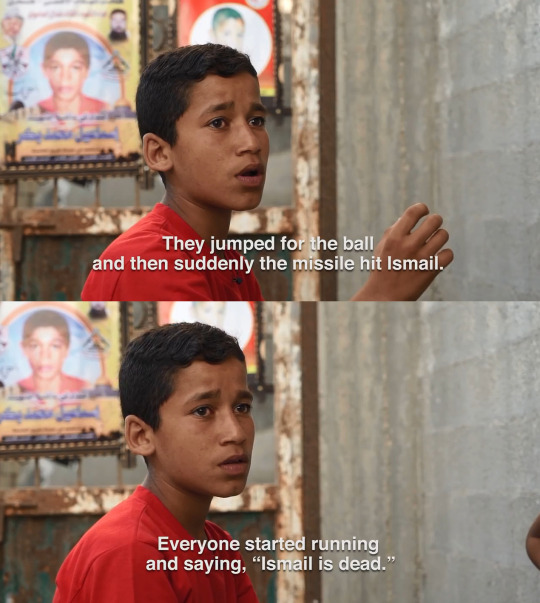

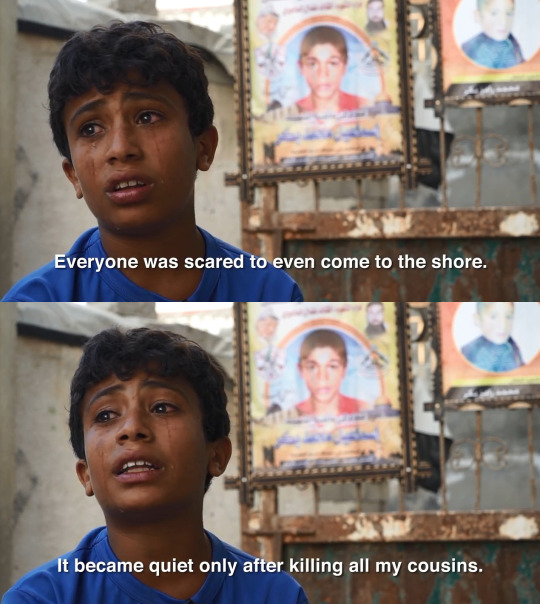
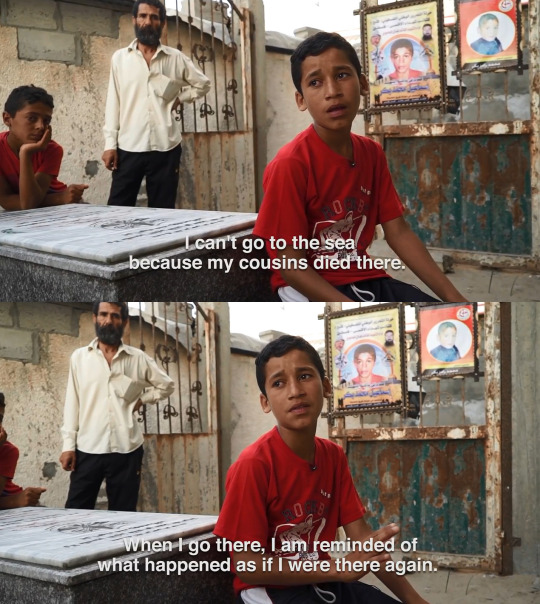
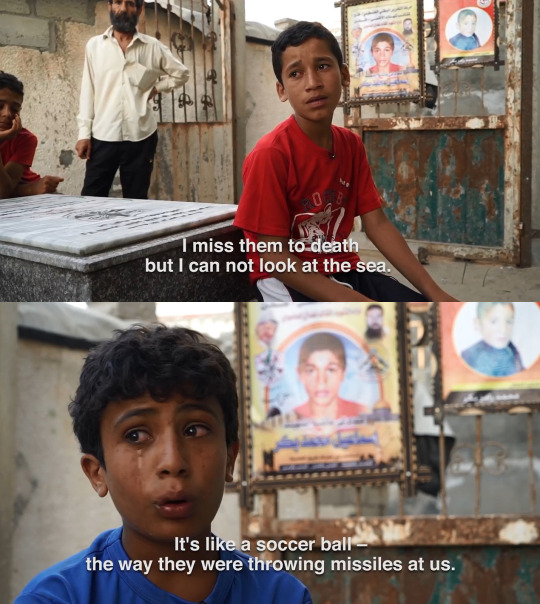
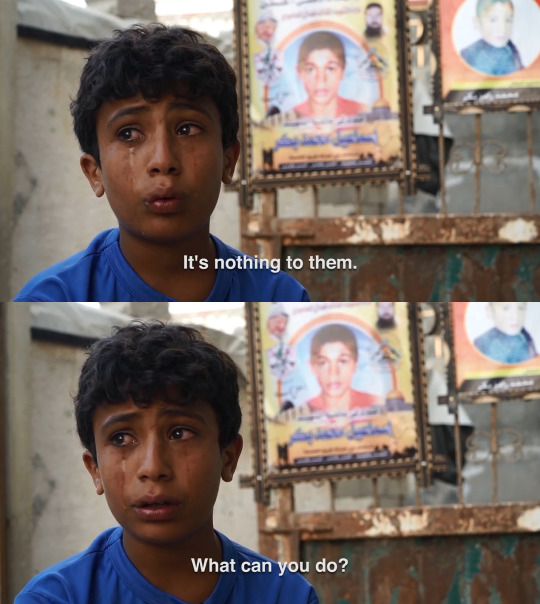
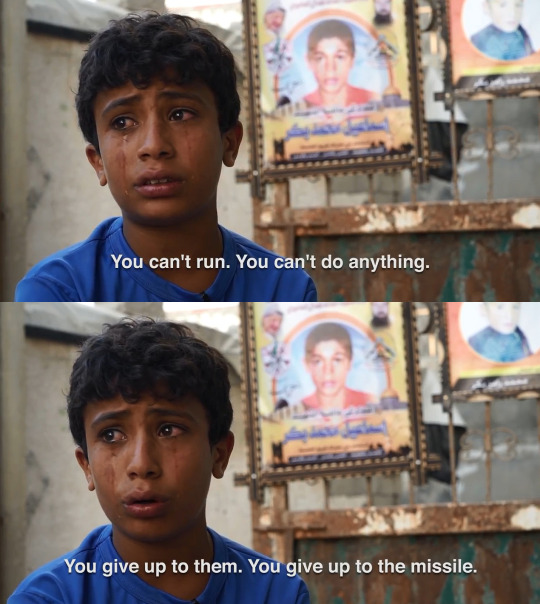

598K notes
·
View notes
Link
1 note
·
View note
Text
To all those writers of dystopian futures where everything is shitted up and use Latin America just as a hellscape, trash dumpster, shitty hole of destruction and chaos: Fuck you. Even if you are latinx, especially if you are latinx yourself. There is enough trash being said about our lands these days for us to take on that fucking trend. I don't care what a best seller has resulted X book, Y novel. Fuck you.
#alex talks#latin america#latinoamerica#dystopia#dystopian fiction#dystopian future#writing#writers#writing tip#i am tagging it like that because i want y'all to consider this#mexico#argentina#chile#colombia#peru#venezuela#bolovia#brasil#guatemala#honduras#costa rica#paraguay#uruguay#and every single other latin american country whose name i don't remember right now#important#relevant#take this seriously#representation#hispanoamérica#and else
7 notes
·
View notes
Photo
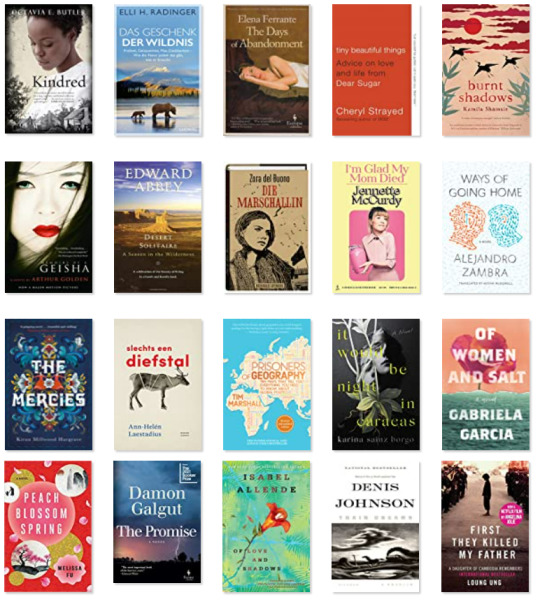

My Year in Books 2022:
11,299 pages read
33 books read
Children of the Volga/My Children by Guzel Yakinha
historical fiction, life, solitude
set in Russia (German colony Gnadenthal) between 1910s-1940s
main characters: Jakob Bach, Klara Grimm, Anna Bach
The Feast of the Goat by Mario Vargas Llosa
historical fiction, politics, betrayal
set in Dominican Republic in 1960s + 1990s
main characters: Urania Cabral, Augustín Cabral, Rafael Trujillo
Persuasion by Jane Austen
historical fiction, romance
set in United Kingdom (Somerset) in 1814-15
main characters: Anne Elliott, Frederick Wentworth, Lady Russell
In Order to Live by Yeonmi Park
nonfiction, memoir, oppression, human trafficking, survival
set in North Korea, China, South Korea in 1990s-2000s
Outpost: A Journey to the Wild Ends of the Earth by Dan Richards
nonfiction, memoir, travel
set in Iceland, US, Scotland, France, Japan, Svalbard
Daughter of Fortune by Isabel Allende
historical fiction, romance
set in Chile (Valparaíso), US (San Francisco) between 1843-1853
main characters: Eliza Sommers, Rose Sommers, Joaquín Andieta, Tao Chi'en
To Paradise by Hanya Yanagihara
fiction, dystopia, family, relationships
set in US (New York, Hawaii) in 1893, 1993 & 2093
main characters: David Bingham, Kawika Bingham, Charlie Bingham-Griffith
Dálvi: Six Years in the Arctic Tundra by Laura Galloway
nonfiction, memoir, introspection, Sámi, nature
set in northern Norway
Where the Lost Wander by Amy Harmon
historical fiction, romance, western
set in US (Missouri, Nebraska, Wyoming) between 1853-1858
main characters: Naomi May, John Lowry
The Four Winds by Kristin Hannah
historical fiction, family, hardship, Great Depression
set in US (Texas, California) in 1921 & 1934-1940
main characters: Elsa Martinelli, Loreda Martinelli, Anthony Martinelli
The Plague of Doves by Louise Erdrich
historical fiction, Indigenous, mystery
set in US (North Dakota) in 1960s, 1970s and before
main characters: Evelina Harp, Mooshum Milk, Antone Bazil Coutts
Men We Reaped by Jesmyn Ward
nonfiction, memoir, race, grief
set in US (Mississippi) between 1970s-2000s
The School for Good Mothers by Jessamine Chan
fiction, dystopia, motherhood
set in future US (Philadelphia)
main characters: Frida Liu, Harriet, Gust
First They Killed My Father: A Daughter of Cambodia Remembers by Loung Ung
nonfiction, memoir, war, Khmer Rouge, family, survival
set in Cambodia between 1975-1980
Train Dreams by Denis Johnson
historical fiction, solitude, western
set in US (Idaho) between 1910s-1930s
main character: Robert Grainier
Of Love and Shadows by Isabel Allende
historical fiction, romance, dictatorship
set in Chile in 1970s
main characters: Irene Beltrán, Francisco Leal
The Promise by Damon Galgut
(historical) fiction, family, grief, race
set in South Africa (Pretoria) in 1986, 1995, 1999, 2017
main characters: Amor Swart, Anton Swart, Astrid Swart
Peach Blossom Spring by Melissa Fu
historical fiction, family, survival, immigration, identity
set in China, Taiwan, US (Illinois, New Mexico) between 1938-2005
main characters: Meilin, Renshu/Henry, Longwei, Lily
Of Women and Salt by Gabriela Garcia
(historical) fiction, family, immigration, deportation
set in Cuba, US (Florida, Texas), Mexico between 1866-2019
main characters: Jeanette, Carmen, Gloria Ramos, Ana
It Would Be Night in Caracas by Karina Sainz Borgo
fiction, social unrest, oppression, grief
set in Venezuela
main character: Adelaida Falcón
Prisoners of Geography: Ten Maps That Tell You Everything You Need To Know About Global Politics by Tim Marshall
nonfiction, geopolitics, history, international relations
set worldwide
Stolen (Stöld) by Ann-Helén Laestadius
fiction, Sámi, discrimination, crime, family
set in northern Sweden
main character: Elsa
The Mercies by Kiran Millwood Hargrave
historical fiction, witch trials, romance
set in northern Norway (Vardø) between 1617-1619
main character: Maren Bergensdatter, Ursula Cornet
Ways of Going Home by Alejandro Zambra
(historical) fiction, identity, politics, dictatorship
set in Chile between 1980s-2000s
characters: nameless protagonist, Claudia, Eme
I’m Glad My Mom Died by Jennette McCurdy
nonfiction, memoir, abuse, mental health, child acting
set in US (LA)
The Marshal (Die Marschallin) by Zora del Buono
historical fiction, family, politics, war
set in Slovenia (Bovec) and Italy (Bari) between 1919-1980
main characters: Zora Ostan, Pietro del Buono
Desert Solitaire by Edward Abbey
nonfiction, nature, environment, national parks
set in US (Utah) in 1960s
Memoirs of a Geisha by Arthur Golden
historical fiction, geisha’s, Japanese culture
set in Japan (Kyoto) in 1930s-1940s
main character: Sakamoto Chiyo/Nitta Sayuri
Burnt Shadows by Kamila Shamsie
historical fiction, romance, family
set in Japan (Nagasaki), India (Delhi), Pakistan (Karachi) in 1945, 1947, 1982-1983, 2001-2002
main characters: Hiroko Tanaka, Sajjad Ali Ashraf, Raza Ashraf, Harry Burton
Tiny Beautiful Things: Advice on Love and Life from Dear Sugar by Cheryl Strayed
nonfiction, self help
The Days of Abandonment by Elena Ferrante
fiction, separation, abandonment
set in Italy (Turin) in 2000s
main character: Olga
The Gift of the Wild (Das Geschenk der Wildnis) by Elli H. Radinger
nonfiction, nature, animals, environment
set in US (Montana, Wyoming, Alaska, Arizona, Minnesota, Massachusetts, Texas), Germany
Kindred by Octavia E. Butler
historical fiction, sci-fi, time travel, race, slavery
set in US (California and Maryland) in 1810s-1820s and 1976
Main characters: Dana Franklin, Kevin Franklin, Rufus Weylin, Alice Greenwood
8 notes
·
View notes
Text

Not long ago, I had a powerful vision of a haunting scene I imagined would be in Avatar 2, 3, 4 or 5. In it, a female Na’vi is captured from Pandora and taken to Earth, shown off in an alien zoo, showcasing animals and Na’vi from their occupied moon in the Alpha Centauri star system. Humans would pay big money to come and gawk at the Na’vi, even heckle them, asserting their cultural dominance through psychological warfare, with some going so far as trying to convert them to Christianity.
This scene is a symbolic expression of the many challenges confronting our own species today, with the rise of Christian nationalism, misogyny and misuse of technology to oppress. The enslaved female Na’vi makes me think of what the feminine side of our humanity is facing, with women in danger of losing power to control their own bodies and destiny. Patriarchal corruption not only threatens fictional aliens called the Na’vi, it also threatens US with the same degraded consciousness that could bring imperialism, racism and endless wars back to the mainstream. This is why it was so easy for James Cameron to imagine a bleak future where world powers are fighting preemptive wars for oil against peoples of Venezuela and Nigeria next.
I initially did a very rough sketch of this scene using pastels. But it was a very poor attempt to capture the emotion of my vision. This is where Midjourney came to the rescue. It did a much better job than my drawing, capturing the vibe I imagined. Here are the results I used to make an update to my Avatar video; “Dreams to Reality,” https://youtu.be/SfrhQrz4Vg4 along with some of the relevant slides of my old Avatar analysis put together back in 2010, and updated in 2017 with directors cut images. As you can see, James Cameron challenges us to reach for our higher selves, and confront conventional ideas about manhood that perpetuate a world of imbalances, threatening future dystopia.
What would our world look like if the spiritual peoples of Earth united like the Na’vi? Would government look different in a global civilization than it does today?
#Midjourney #Navi #Avatar #Avatar2 #TheWayOfTheWater #WayOfTheWater #Pandora #JamesCameron #Pandora #FlightOfPassage #DisneyWorld #PandoraDisney #TheWorldOfAvatar #AvatarConsciousness #SpiritualNatives #OneTribe #OneHumanTribe #GlobalCivilization

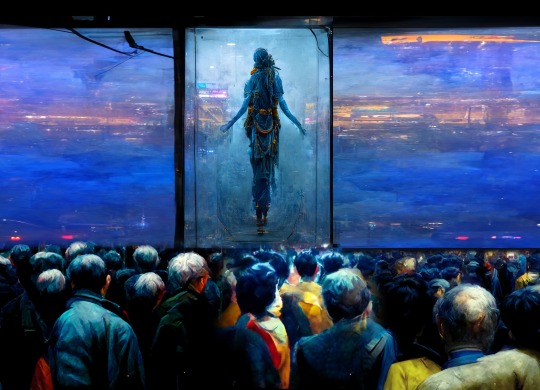
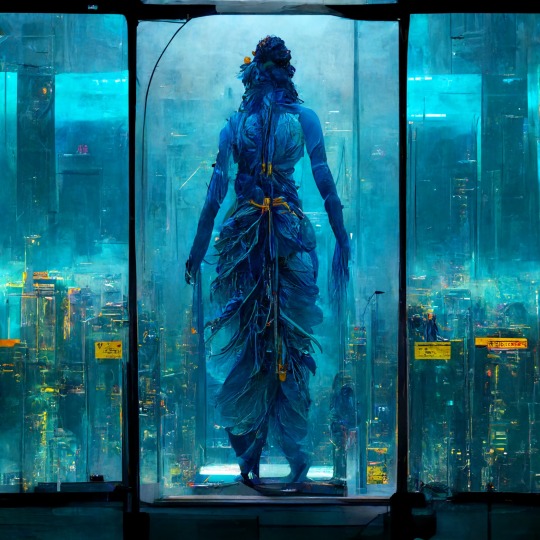
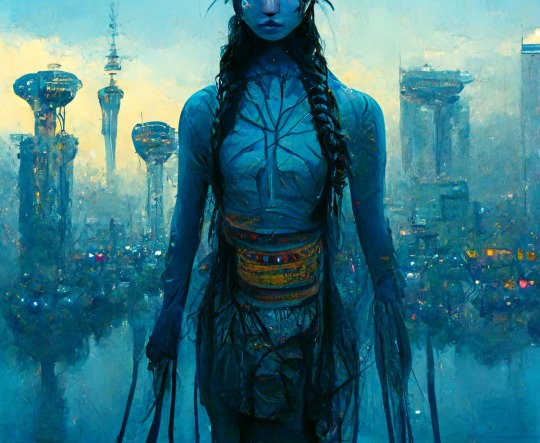
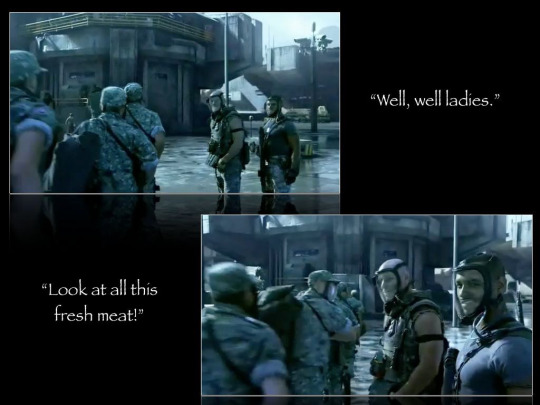



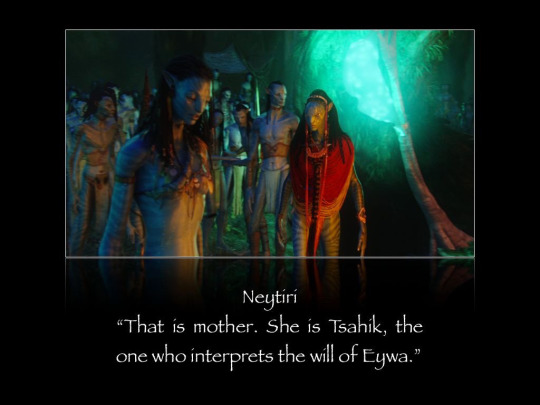
14 notes
·
View notes
Text




“VA-11 HALL-A: Cyberpunk Bartender Action” is a bartender simulator set in a cyberpunk dystopia! In a world of corporate rulers and oppressive nanomachines, play as Jill, a bartender at the VA-11 HALL-A bar within Glitch City. Satisfy your patrons through a nonlinear narrative as you learn about the world through their eyes, mix drinks, create playlists, and uncover multiple endings!
For Windows, Mac, Linux, PlayStation Vita, PS4, and Nintendo switch.
Developed by Sukeban Games, a studio that combines the work of Venezuelan and Japanese developers. Its titles mix together drama and comedy in an attempt to capture “laughter in the middle of despair” due to the developers’ own experiences in Venezuela.
#indie gaming#indie games#gaming#video games#cyberpunk#visual novel#sci-fi#latine devs#asian devs#narrative driven#windows games#Mac games#linux games#console games#cooking#lgbt content#japanese devs#East Asian devs#Venezuelan devs#switch games#pixel art#dystopian#point and click#simulation#transhumanism#anime#comedy
192 notes
·
View notes
Text
Script #1
I have a cool idea for a new movie that takes place in a dystopia 3 years after a family goes down into a bomb shelter. Upon their reentry into the breathable outside world they make their way into a nearby community where they learned what happened after they went down into the ground.
Basically the gist of it is the Holy Bible was real and the book of Revelation really came true with the arrival of the Antichrist preceding Jesus' return!
1/3 of the global population really was wiped out and nuclear Armageddon basically came true. The bomb shelter was more countryside than city so they were okay once led by a real life doomsday prepper. They had all the tools needed to survive including weaponry and an underground hydroponics system to grow fresh fruits and veggies.
This character, who can remain nameless helped a few others in friends and family so he wasn't alone. The revolution that had drove this band underground had disrupted the global economy in fact it shut it down! The petro dollar went bye bye and industry went with it.
There was no longer any need for the United Nations and honestly countries weren't really held together anymore. Borders basically got washed off the map. Global governances were basically gone and you know it's really ironic because Jesus thought he was gonna come down and be king of the United Nations. The Antichrist and his mass of sleeper cell agents from across the globe were still battling 3 years after the initial invasion.
The year is 2039 AD and outer space colonization had already begun back in the 20s. An Antichrist sleeper cell unsuccessfully attempted a terrorist attack on the moon base going for its breathable oxygen converters. Fortunately for what could have been a large section of loss life; a US space force astronaut tracked him down and showed the world what justice is really like on the lunar fortress. We help our neighbors.
Back to Earth it was the usual suspects at war with eachother. China, Russia, Korea, Iran, Vietnam, Cuba, and Venezuela unified once again to try and destroy the United States. Naturally countries in the European Union, Australia, and Africa announced sides but the war didn't last long. The nuclear football was finally used and the Doomsday Clock went to zero.
Not dozens but hundreds of cities were destroyed all over the map. You did not want to live in an urban area but there were straggler rockets that missed their targets doing some serious damage on the countryside. A small community in California called Discovery Bay was completely wiped off the map!
The movie is nonlinear and there are flashbacks. There is potential for even a sequel or perhaps a trilogy.
3 notes
·
View notes
Text
Is Socialism the Most Appropriate Form of Government for the U.S.?
BY BETHANY HANNAN.
Socialism: Utopia or Dystopia?
In the U.S., if you’re in need of medical care, how long does it usually take to obtain it? After walking into the doctor’s office, maybe ten to twenty minutes? Now, imagine if that time quadrupled. In places governed by socialism, it is common to get put on a waitlist to see a doctor; the time of which you’re on that waitlist can range between six to eighty days. Some areas in Europe are particularly fond of this method of social organization. Two summers ago, my parents took a trip to Scotland, Ireland, Switzerland, and France. While in France, they came across a taxi driver who needed a knee surgery. He had been driving the taxi they were in for about five months, waiting for his turn to get a consultation. He was supposed to be on the waitlist for six months, but he had been waiting for a year to even figure out what he was supposed to do or what was going to happen. He didn’t get to pick his doctor, let alone for an important surgery that would determine whether or not he could walk afterwards. This is just one of the many different angles of socialism. This one, however, leans pretty heavily towards anti-socialism. Socialism has been, and always will be, a very controversial topic. But first, what is socialism? According to Lexico (funded by Oxford), socialism is “a political and economic theory of social organization which advocates that the means of production, distribution, and exchange should be owned or regulated by the community as a whole”. Most would call that a socio-economic score, but the history of socialism and it’s concerning determinism begs to differ. Socialism started primarily with one man: Karl Marx, creator of Marxist socialism and believer in the “true” socialism and communism. He built up his definition of socialism to be “a society which permits the actualization of man's essence, by overcoming his alienation. It is nothing less than creating the conditions for the truly free, rational, active and independent man; it is the fulfillment of the prophetic aim: the destruction of the idols” (Fromm 5). Marx thought that a mind under a common good would be more securely operational than a divided mind under a self-benefiting, centralized force would be/had been. He found freedom in the fact that one could find solace in the shared communion of society, whereas a capitalist or otherwise individualistic government would segregate the people into hierarchies of social acceptance; in some ways, he was right. “The freedom in this field cannot consist of anything else but of the fact that socialized man, the associated producers, regulate their interchange with nature rationally, bring it under their common control, instead of being ruled by it as by some blind power; they accomplish their task with the least expenditure of energy and under conditions most adequate to their human nature and most worthy of it” (Fromm 3). But socialism has developed many different interpretations throughout the years that force the people to look at it from multiple angles. It used to be considered an “old man’s ideology”, but with the youth’s increasing political awareness and personal beliefs, it is now the talk of the political century. Many believe socialism could be the key to the ultimate utopia for our country, but there are many cracks within the glass that suggest otherwise. Considering the stats, it seems socialism has hindered some countries’ economic prosperity more than it has helped them.
In 1999, Venezuela came under the rule of a socialist government, all thanks to their late president Hugo Chavez. When Chavez got elected, he intended to alleviate poverty and the suffering of his citizens, but only promised economic degradation of his once-prospering country. In his article, Daniel Di Martino tells a personal anecdote about the effects of socialism saying, “The regime nationalized electricity in 2007, resulting in under-investment in the electrical grid. By 2016, my home lost power roughly once a week. Our water situation was even worse. Initially, my family didn't have running water for about one day per month, but as the years passed we sometimes went several weeks straight without it” (Di Martino 2-4). Hyperinflation burdened almost every family in Venezuela and many places governed under socialism. Everyday assets were hard to afford, meaning those who couldn’t afford them, or were simply stripped of them, had to pay the price for choosing a political party they didn’t quite understand the gravity of. Because of Chavez’s aspiration for a community that was not yet achievable, Venezuela’s economy collapsed and hyperinflation (inflation accelerated to 700 percent, says The American Institute for Economic Research) destroyed the country’s currency. Chavez also failed to console the public’s concerns about it.
An editor from a Tribune Business News article states;
As The New York Times reported in 2007: ‘Chavez has threatened to jail grocery store owners and nationalize their businesses if they violate the country's expanding price controls.’ Last year, his government seized a Cargill rice processing plant for failing to produce enough rice at regulated prices. Venezuela's government-run grocery stores present shoppers with two prices: the precio capitalista, or capitalist price, and the precio justo, or just price. (Tribune Business News 3)
Di Martino even tried to escape to the United States to rid himself of Venezuela’s lasting socialist ways, but he was only met with (and disgraced by) the States’ attempt (prompted by Sen. Bernie Sanders and others) to harness ultimately socialist ways as well.
Granted, some will take the idealistic high road and argue that socialism works exceptionally well when everyone works under an “all-for-one” mindset. They defend their argument by providing evidence on how much the human mindset has already changed throughout the years we’ve existed because of the social status quo or a common statute or way of government, provided that capitalism has only existed for some 500 years, so there must have been some other way of functioning politically.
In his article, Richard Ebeling provides an example of what some hyper-enthusiasts and idealistic believers in socialism think, saying;
A true socialist society would mean more freedom not less, so it was unfair to judge socialism by these supposedly twisted experiments in creating a workers' paradise. Furthermore, under a true socialism, human nature would change and men would no longer be motivated by self-interest, but by a desire to selflessly advance the common good. (Ebeling 5)
But, to combat that far-fetched opinion, we must face the facts: man is powered by selfishness. It is in our DNA to want things only and tactlessly for ourselves, take the hunters and gatherers for example; only recently have we even considered, or more or less tolerated, sharing with others what we believe we worked hard for for ourselves. Although the human mindset contains room for growth and evolution and possibility for change, when it comes to sharing the fruits of our labors, it becomes a little less simplistic. We would become barbaric, or on the other side of the spectrum, realize we would never have to do anything ever again to earn said fruits, because they would be fruits of someone else’s labor.
Socialism has a good intention set forth, but it still needs several reevaluations before it can be considered a true rumination. Although some try to argue that socialism is making a sizeable dent in the political forcefield, it’s quite the contrary; the lasting members of the socialist party for the US are nearing their demise. In his article, Robby Soave advocates for this detail, saying, “As recently as 2013, the average member of the Democratic Socialists of America (DSA) was 68 years old. Even today, the ideology's best-known spokesperson, Sen. Bernie Sanders (I-Vt.), is 77” (Soave 8). If anything, the socialist party will be fading come ten years from now instead of “uniting the people through means of commonality” like the enthusiasts hope. It could be possible, however, if the socialist party were to tweak some of their over-eager precepts, such as with Hugo Chavez’s plan to abolish poverty. Perhaps focusing on opening up more entry-level jobs for those that don’t have the money or experience for higher-level opportunities, thus preparing them for said higher-level opportunities by providing them work experience at large. Redesigning the whole government into a socialist “utopia” wouldn’t have been necessary, just redefinition of Venezuela’s old government. If we were to all agree to work towards a socialist world, the structure of every institution and every format of law would need to change. "Mere state ownership of key productive forces is not enough to create a socialist society; the people must exercise a sovereign rule over these productive forces and society as a whole, and the society must be organized to promote collective needs" (McChesney 11). Instead of reinventing the government in its entirety, the government should simply and unhesitantly address what caused all of the poverty. If it was actually democracy that ruined Venezuela’s socio-economic status or if, with any means of government, poverty would still be present in the country. In his article, Eric Foner brought the empty promises of socialism to the light, saying, “The Socialist party, although it elected hundreds of candidates to local office and obtained nearly a million votes for Eugene Debs's 1912 presidential candidacy, failed nevertheless to bridge the gaps between skilled and unskilled workers, and native-born whites, blacks, and immigrants” (Foner 2). Throughout the years, socialism and its tendency to manifest fickle infrastructure has never promised anything more than a contradictory mix of ensured laziness and chaos because of lack of assiduousness and satisfaction in one’s own achievements.
But let’s not ignore the elephant in the room: capitalism, “an economic and political system in which a country's trade and industry are controlled by private owners for profit, rather than by the state” (Lexico, funded by Oxford). The nation’s silent assailant isn’t as innocent of charges as we grant it to be. Capitalism has accustomed some to receiving all, and others receiving none, therefore the idea of socialism is a bizarre and frankly forbidden concept some refuse to accept. "In the development of U.S. capitalism, the wealth of some was inextricably tied to the poverty of others, and race and gender largely determined which were which: Native American land, Black slavery, Latin American resources, and the underpaid labor of women and children factory workers formed the pillars of capital accumulation" (Mankiller 3). Under this mindset, US citizens, and anyone else under a fundamentally capitalist way of operating, often slip into a disposition to where they believe they are entitled to free choice. But free choice is merely a side dish that comes alongside capitalism, almost as a “thank you” package for putting it into place. US citizens forget to acknowledge all of the delicacies that capitalism has graced us with (or, rather, addicted us to). Let’s take phones for example: phones, iPhones in particular, have become the poster child of our generation, all thanks to capitalism. We are able to buy one whenever we want, get whatever model we want, get whatever update we want when we want, get whatever apps we want on there (excluding incidences of parental restriction, but even then, that’s a freedom within itself). We have a million different freedoms right between our palms and we forget it every day. With socialism, people tend to forget that it’s an “all-for-one” mindset, therefore those decisions are made for you, and you have no say in it. This is no longer a democracy, whether you try your hardest to believe it so or not. Now the government makes every action for you. Makes socialism look a little more restricting now, doesn’t it? Well, you’ll have plenty of time to have your complaints sent to voicemail, since socialism sits idle in office for four lengthy years. Surprise! Welcome to autocracy and favored aristocracy. Population, you. Also, don’t think socialism will pick favorites among the people, because it won’t. It will only make life easier for those with millions flowing out of their britches every month. For a solid amount of people, that’s a tricky and unconstitutional notion that they want to avoid letting their kids grow up with.
Speaking of the youth, institutions such as schools would change structures completely. Public schools under a socialist government would alter the democratic way the teachers teach in the classroom. Some view this alteration as a blessing in disguise, one that eliminates material competition for students and eagerly encourages a positive reinforcement teaching method. Students would be “placed in work based on their strengths and not be penalized for their weaknesses” (angelfire.com). Many teachers currently argue that a more well-rounded and socialized instructional method would “build character” and “effectively teach right from wrong”. Students would learn quicker and would legitimately welcome teacher instruction without fear of potentially ill-fitted punishment. Karl Marx argued for “‘polytechnical education’, linking schooling with the real world of production” (socialistsalternative.org). He believed this new method of instruction would differentiate those who “labored” and those who “thought”, thus progressing our society into what it needed to be to better the circumstances we live in. In the 1950’s, an institution called the Socialist Sunday School (SSS) changed mainstream instructional ways into those encouraging socialism. The school taught more diverse topics, like Philosophy, and encouraged students to look at things from a new, more socialized perspective; one that, they argued, schools under capitalism failed to endorse. Margaret McMillan, one of the school’s utmost supporters, put forth that there was “new intimacy between teacher and taught” (Reid 5). She then proceeded to state the freedoms our kids should have, and would have under a more socialist way of schooling, saying, “our children should draw freely” and “they should write more and talk more than is possible in the day school” (5). Furthermore, privatized education, under socialism, would encourage charter schools to place their books under public scrutiny because of public funding towards it. Many who believe in “true” socialism also believe in this notion coming into fruition; the public paid for those books to be given to charter schools, and capitalism has denied them from even using them, so socialism would, therefore, grant rights to things that were previously deemed “privatized”, which is one of the reasons why so many people are in its favor.
Education and political affiliations are bound to be interconnected. Differing governmental styles have a heavy influence on the infrastructure and lesson plans of a school’s curriculum. It ultimately determines what the students are exposed to, thus those who learn more prevalent material during their school years tend to have better chances to succeed later in life. Voxeu.com states, “treated individuals, who were exposed to socialist schooling for one less school year, exhibit 2% higher employment rates and 1.5% higher hours worked. For the older birth cohorts, less exposure to non-meritocratic access restrictions in the treated group leads to 4% higher wages and a 5% higher probability of having a professional job” (12). Schools functioning under socialism would presumably be more efficient as the years went on and the pure definition or representation of morals of socialism would be reevaluated. They would offer higher level thinking opportunities and give time for students’ problem solving skills to develop due to lessened authoritarianism in the classrooms. Socialism, in this instance, would solve many unnecessary setbacks in educational settings.
My parents’ taxi driver’s experience with socialism continues to be the poster child for why observers of any political movement should look at both sides of the road before crossing. Public healthcare in places dominated by socialist governments such as France could be considered an actor with an excellent facade. It will hold up it’s act until the curtains close and the lights begin to fade and nobody is around to see how genuinely flawed it really is. It’s mask is slowly developing cracks, yet those cracks are not enough to enforce change in legal structures. It won’t be enough until it breaks completely and tanks France’s governmental state too. Universal healthcare has not only shot down opportunities for free choice when it comes to doctors or waitlists, but it has also driven away any competition in the healthcare business due to one business centralizing all profit.
In his article, John Sieler demonstrates how ruinous universal healthcare could be if manipulated by those fighting for said centralization, saying;
TennCare (another experiment in medical socialism), explains the entry in Wikipedia, ‘was designed to expand health insurance to the uninsured through the state's Medicaid program by utilizing managed care.’ Centralization was supposed to reduce costs, with ‘free’ money from the federal government picking up any financial slack. But predictably, many companies stopped providing medical insurance, forcing employees to sign up with TennCare. ‘In short order, one quarter of the state's population was on TennCare,’ Patrick Poole wrote on AmericanThinker.com last January. TennCare ‘has forced dozens of hospitals out of business, pushed thousands of doctors and other health care professionals out of the state, destroyed any semblance of a competitive health insurance market, and nearly drove the state government into bankruptcy.’ (15-16)
Universal healthcare proves beneficial in theory, but as anything more than a hypothetical, it severely lacks any strong foundation. As it’s carried out, those who practice business under it will benefit, whilst those who are forced to live under it will fall prey to extended wait times and lack of free choice.
Socialism, as a whole, poses many thoughts about what freedoms man is granted at birth and upholding those freedoms throughout one’s lifetime. Moral and socio-economic angles have to be approached to come to a sensible conclusion. As of right now, the most logical conclusion, given the state at which socialism is currently, is that the political movement is not ready for export. Socialism begs too many questions and leaves too many loose ends free for it to be properly dished out. The leaders wanting to fight for socialism to become as mainstream as capitalism will ultimately let the centralized power get to their head, and subsequently, lose control of what was once a stable country. Karl Marx had a clear vision to which he was ready to manifest into fruition, given the economic state of the world around him. But the vision he wants to implement is too fool-hardy and quick to the gun. Maybe Marx’s dream for socialism will come true some day, once all is taken into revision. Then we, as human beings, can finally say we learned the way of mental plasticity, true change, and, thus, a reason to never doubt the supposedly impossible. But until then, man will continue to harvest, blindly and exclusively.
Works Cited (and Interesting Sites to check out!)
Ebeling, Richard M. "Why Socialism is "Impossible"." Freeman, Oct 2004. Sirsissuesresearcher, https://explore.proquest.com/sirsissuesresearcher/document/2267936372?accountid=41449.
Foner, Eric, and John A. Garraty. "Socialism." , 1991. Sirsissuesresearcher, https://explore.proquest.com/sirsissuesresearcher/document/2265463961?accountid=41449.
Fuchs-Schündeln, Nicola and Masella, Paolo. 05 June 2016.
https://voxeu.org/article/long-lasting-effects-socialist-education
Fromm, Erich. “Marx’s Concept of Socialism.” 1961.
https://www.marxists.org/archive/fromm/works/1961/man/ch06.htm
Glover, Juleanna, et al. “What Would a Socialist America Look Like?” POLITICO Magazine, 3 Sept. 2018, www.politico.com/magazine/story/2018/09/03/what-would-a-socialist-america-look-like-219626.
Mankiller, Wilma. Socialism. , 1998. Sirsissuesresearcher, https://explore.proquest.com/sirsissuesresearcher/document/2265472802?accountid=41449.
Martino, Daniel D. "Socialism Destroyed My Home, Venezuela." USA TODAY, 19 Feb 2019. Sirsissuesresearcher, https://explore.proquest.com/sirsissuesresearcher/document/2264363868?accountid=41449.
McChesney, Robert W. "Capitalism, the Absurd System." Monthly Review, 06 2010. Sirsissuesresearcher, https://explore.proquest.com/sirsissuesresearcher/document/2265594180?accountid=41449.
Soave, Robby. "Socialism is Back, and the Kids are Loving it." Reason, Aug 2019. Sirsissuesresearcher,
Reid, Julie. The Guardian (pre-1997 Fulltext); Manchester (UK) [Manchester (UK)]02 Jan 1996: T.014.
BY BETHANY HANNAN.
1 note
·
View note
Photo

Night Hunters is a dystopian cyber punk comic created by Alexis Ziritt ( Space Riders, Tarantula) and Dave Baker (Fuck Off Squad, Action Hospital) and published by Floating World Comics (Revenger, All Time Comics).
In the year 2131, Venezuela is a post-apocalyptic military state, governed by a ruling class of brutal elite and their enforcers: the police force. We follow childhood best friends, and ostensibly adoptive brothers, Julian and Ezekiel, as they attempt to navigate the seedy underbelly of this cyberpunk dystopia.
Support it on Kickstarter!
1 note
·
View note
Note
So, if America is this horrible dystopia, why haven't you moved to Venezuela or North Korea already?
“If you live in such a horrible place, why don’t you move somewhere worse?”It’s funny how you ignore how difficult migrating to another nation is, especially considering that requires wealth that lower class Americans simply don’t have
1 note
·
View note
Text
Honest Debate
I’m getting very tired of all the bad faith debates about socialist policies.
And, by the way, that’s mostly what is being suggested right now...
Policies.
Not full blown socialism.
Not gathering up all the wealth and then giving everyone an equal share. No closing down the stock market. No mono-class of wealth. Your grandma’s lotto scratchers are safe.
All that is being discussed currently are socialist-style policies that will affect things like healthcare, education, and poverty.
No one with authority is suggesting we flip a switch and turn off capitalism. Changing an economic system overnight would probably be disastrous. If there ever is a transition into another system, it’s probably best done over years and years.
But everyone who craps on anything with a socialist label usually doesn’t understand what is being suggested or is using dishonest rhetoric to influence those who don’t know better.
Clearly, they are speaking more of authoritarian communism. They use examples of highly corrupt governments that may label themselves as socialist or communist, but rarely adhere to those philosophies with any consistency.
And then they ignore mostly capitalist countries with basic socialist policies that don’t seem to be falling apart at the seams.
And when those countries are brought up, if their policies are not being executed with absolute perfection, it’s argued that they are total failures. Which is another bad faith debating tactic.
The US already has many socialist policies that no one seems to mind. Do you like them roads you drive on? Do you like them firefighters that get your cat out of the tree? Perhaps people could go to the library and read a book about socialism and its various flavors.
I know there are people who want to eat the rich and abandon capitalism. Sans beheading Jeff Bezos, I share many of their ideals. But I tend to be pragmatic and realistic. It will be a very long road to move away from capitalism. And right now all that is being suggested is adding a few programs that will help our population stay healthy and educated.
I don’t foresee these policies creating a bread line dystopia. That is just fear mongering nonsense.
I think if someone wants to debate these socialist policies, it would be nice if it were done on more honest terms.
“How are we going to pay for it?” is a valid question worthy of discussion.
“Do you want to end up like Venezuela?” is horse hockey.
121 notes
·
View notes